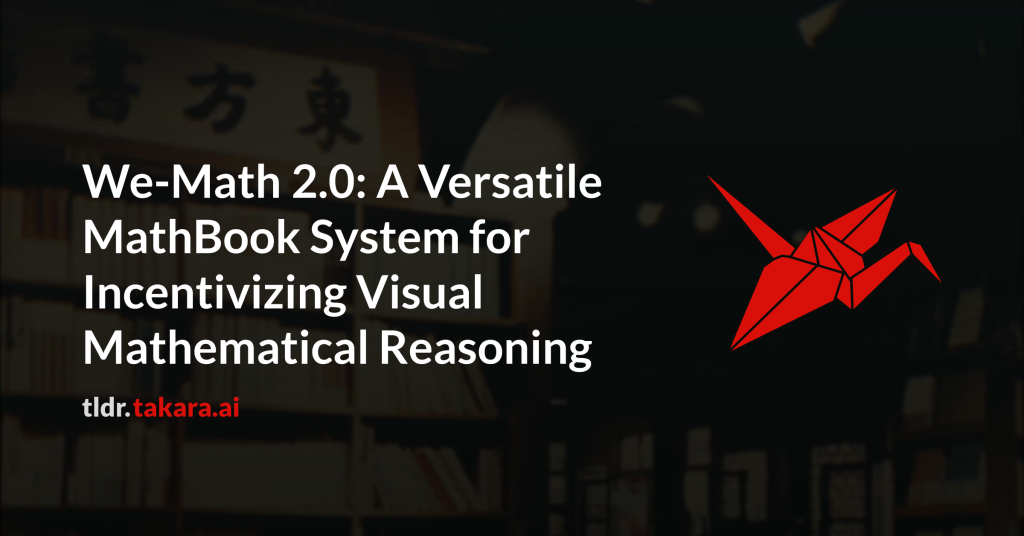Multimodal Large Language Models (MLLMs) have demonstrated impressive
capabilities across various tasks, but still struggle with complex mathematical
reasoning. Existing research primarily focuses on dataset construction and
method optimization, often overlooking two critical aspects: comprehensive
knowledge-driven design and model-centric data space modeling. In this paper,
we introduce We-Math 2.0, a unified system that integrates a structured
mathematical knowledge system, model-centric data space modeling, and a
reinforcement learning (RL)-based training paradigm to comprehensively enhance
the mathematical reasoning abilities of MLLMs. The key contributions of We-Math
2.0 are fourfold: (1) MathBook Knowledge System: We construct a five-level
hierarchical system encompassing 491 knowledge points and 1,819 fundamental
principles. (2) MathBook-Standard & Pro: We develop MathBook-Standard, a
dataset that ensures broad conceptual coverage and flexibility through dual
expansion. Additionally, we define a three-dimensional difficulty space and
generate 7 progressive variants per problem to build MathBook-Pro, a
challenging dataset for robust training. (3) MathBook-RL: We propose a
two-stage RL framework comprising: (i) Cold-Start Fine-tuning, which aligns the
model with knowledge-oriented chain-of-thought reasoning; and (ii) Progressive
Alignment RL, leveraging average-reward learning and dynamic data scheduling to
achieve progressive alignment across difficulty levels. (4) MathBookEval: We
introduce a comprehensive benchmark covering all 491 knowledge points with
diverse reasoning step distributions. Experimental results show that
MathBook-RL performs competitively with existing baselines on four widely-used
benchmarks and achieves strong results on MathBookEval, suggesting promising
generalization in mathematical reasoning.

